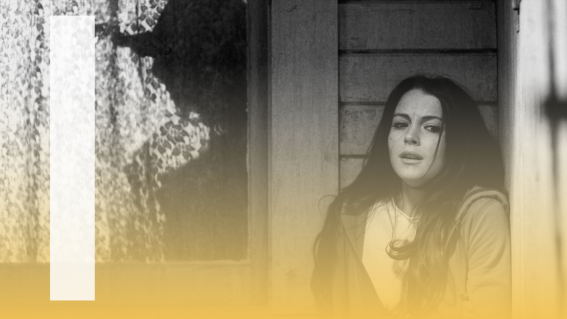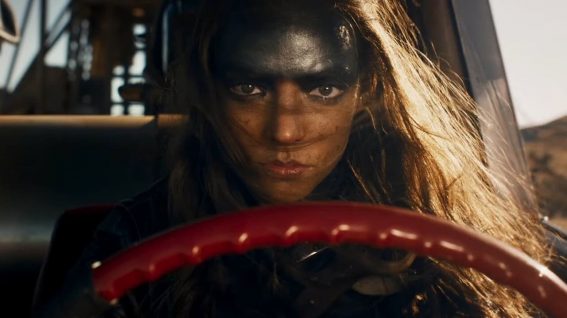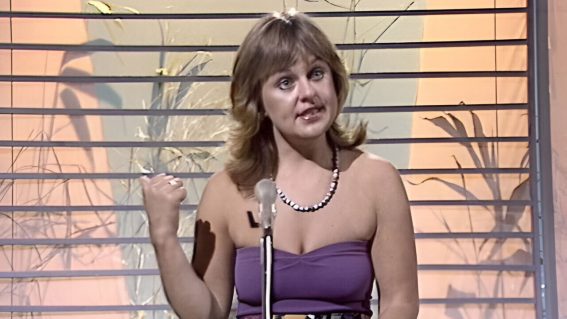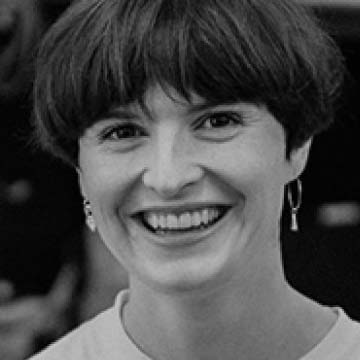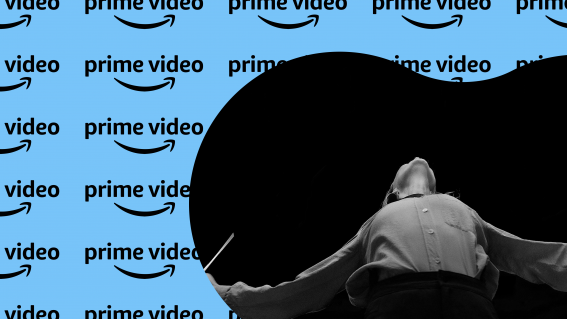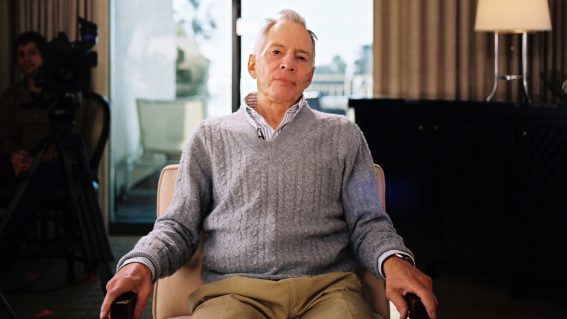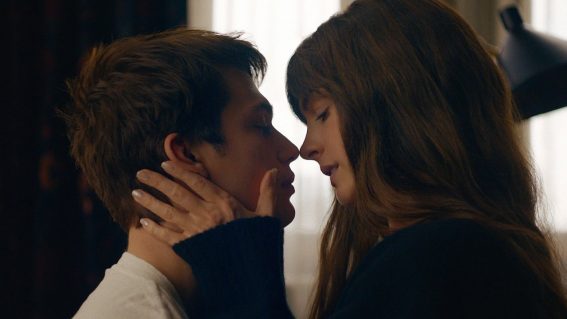M. Night Shyamalan Was Aliens
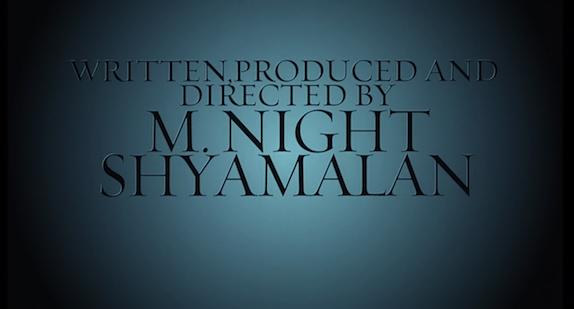

The universe has spoken: M. Night Shyamalan has – pardon my French – crapped out another shitter. Furthering his decline from any form of credibility, his latest film, the sci-fi adventure After Earth (unseen as of writing but reviewed on Flicks here) has crashed and burned, tanking miserably at the US box office while getting mercilessly eviscerated by film critics. Not even Sony’s pre-emptive decision to de-emphasise Shyamalan’s once-marquee-strong name from marketing materials could save this one (“From the director of The Sixth Sense” doesn’t have much pull these days). All of which is to say of course, that everyone saw this coming.
From the outset After Earth already smelled stinky: Shyamalan’s involvement, Will Smith’s creative shepherding of the project as a platform for his son Jaden to become Future Will Smith, and an underwhelming trailer that visually made the film look like it was assembled from the wreckage of the not-too-dissimilar post-apocalyptic Tom Cruise vehicle Oblivion from a few months ago…all prime ingredients for the perfect collective shrug. But I’m gonna set all this aside for a second.
Don’t get wrong, I don’t think the relentless mudslinging levelled at Shyamalan is undeserved. He tried to sucker us one too many times with his silly rug-pullin’ antics; his well-documented raging ego is laughable, not exactly the most admirable trait. Add me to the list of people who enjoy ragging on him, simply because it’s easy to. But you know what? All things considered, his signature body of work, between the lightning-bolt mainstream success of The Sixth Sense and the unmitigated laugh-out-loud trashiness of The Happening, resembles no other Hollywood filmmaker of his generation working in the field of the fantastique. M. Night was on some other wavelength, which for a brief period, everyone wanted to tune into, even as people were just as quick to switch off. I think he’s a little too weird to completely write off, too offbeat to ignore, thus I’ve dedicated 12 hours of my life to re-watching those key films that made, and ultimately derailed his career to see if they’re as good or bad as I remembered. (Spoilers follow)
THE SIXTH SENSE
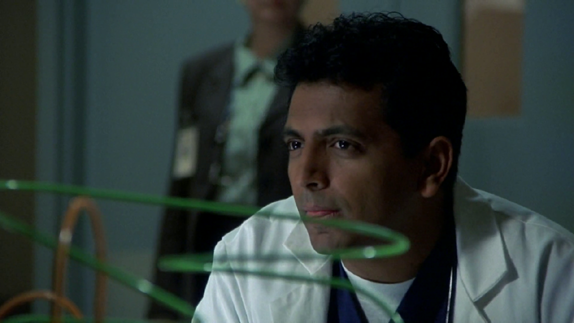
It’s easy to joke about this game-changer now (“I see dead people” hahaha) but once upon a time in 1999, Shyamalan’s brand of slow-burn spookiness genuinely captivated audiences. There was no Ti West around doing this sort of thing, and it was a breath of fresh air in the post-Scream world of American horror, harking back to subtly creepy classic ghost stories like The Haunting and The Changeling. It cemented Shyamalan’s reputation as a lover of twist endings, but also demonstrated his keen sense for creating suspense and atmosphere, with a strong command of technique that had critics – perhaps prematurely – comparing him to Spielberg and Hitchcock.
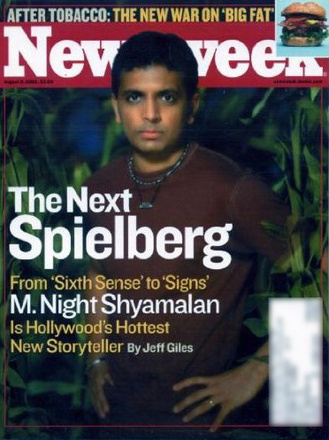
And the film remains tremendously watchable today because of the meticulous craftsmanship, with ace contributions from cinematographer Tak Fujimoto and composer James Newton Howard, both of whom Shyamalan would continue to work with in subsequent films. Of course, the engaging, absorbing chemistry between Bruce Willis and Haley Joel Osmont helps too, the latter giving one of the best child performances of that era. Seen a second time, the twist serves as a stinging reminder of how foolish we were to miss it the first time around, but the bulk of the film more or less works as a moody, melancholy tale about a guilt-ridden ghost who doesn’t know he’s dead yet.
UNBREAKABLE
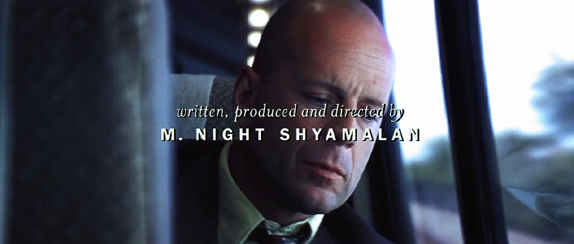
How do you follow up an unexpected box office smash like The Sixth Sense? In Shyamalan’s case, you deconstruct the comic book and make a movie that plays like a superhero origin story directed by Tarkovsky! I’m giving him too much credit there, but Unbreakable’s chief distinction is definitely the ponderous gravity it brings to the superhero genre, an approach that Christopher Nolan would later use for his Batman films. Shyamalan’s style crystallises here: it’s deliberate, economical, self-conscious even, but his willingness to milk tension from long takes and eschew effects-powered set-pieces results in a strangely artful, conceptually ambitious and elegantly unremarkable addition to a now-commonplace blockbuster genre (the entirety of Unbreakable probably has as many shots as The Avengers does in its first 30 minutes). Willis gives another great understated performance (he used to be really good at this kinda thing), and Samuel L. Jackson is quietly maniacal and tortured as the arch enemy whose physically debilitating condition provides a sound emotional foundation for the finale’s reveal, even when it’s no longer a surprise. As time goes on, Unbreakable looks more and more like Shyamalan’s best film.
SIGNS

I’ve never been been a fan of Signs, considered by some to be Shyamalan’s answer to Close Encounters of the Third Kind. It’s perhaps his most deeply religious film, about a preacher (Mel Gibson) who’s lost his faith and his journey to reassess it when an alien invasion threatens the livelihood of his family. I don’t have a problem with the film’s spiritual overtones, nor its allusions to 9/11, and I can appreciate his attempt, once again, to tweak genre expectations by narrowing the focus to the family and keeping the aliens mostly hidden from view. But the gigantic lapses in logic kill it, especially once you realise how thinly scripted the narrative is (even more evident on repeat viewing). This is the movie where aliens have the capability to travel through space and create intricate crop circles undetected, yet have difficulty opening pantry doors and aren’t smart enough to figure out that about 70% of the Earth consists of the thing that’ll destroy them: water. Fleeting moments of suspense aside, Signs is one stodgy, hokey, uneventful movie, and god, Mel’s such a ham.
THE VILLAGE
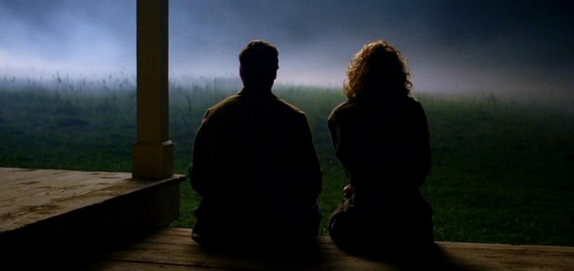
I’m tempted to call The Village Shyamalan’s most underrated film. He’s directed three films with well-known twist endings (maybe less so with Signs), so the fact he actually went for it and pulled another one was pretty, pretty ballsy. The twist here is the easiest to figure out of all his films, partly because viewers were more clued-in at this stage to Shyamalan’s ways and would have been paying extra attention… and partly ‘cos it’s just easy.
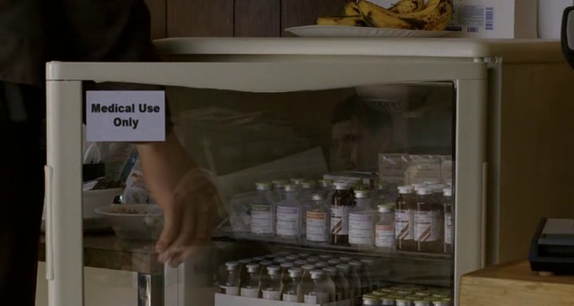
Hey guys I'm here do you see me
On re-watch it’s easier to appreciate The Village as the best movie Rod Serling never made. The revelation that the village was fake, created by “elders” to remove themselves from the ugliness of the present and lead more primitive but innocent lives in the past, has a moralistic bent worthy of Serling. It also excuses, maybe unintentionally, the mannered dialogue, which often sounds like it’s being delivered by am-dram actors doing The Crucible or something. But with Coen brothers DP Roger Deakins on his side, Shyamalan made the most exquisitely textured, gorgeously shot and designed movie of his career, its surface qualities so ethereally rich that it offsets its goofier bits while enhancing the haunting implications of the ending. You’d be surprised at how well this one holds up.
LADY IN THE WATER
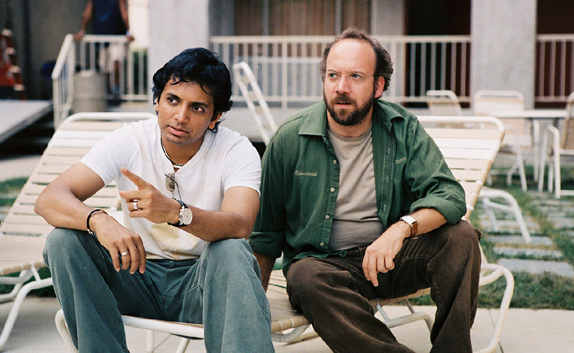
I really – like really – wanted to give Lady in the Water another chance, thinking maybe I was too harsh on it the first time round. This is the one Shyamalan film that feels like his most personal work, an untouched vision ripped from his Id (it’s based on a bedtime story he told his kids). I can respect that. But the truth is, the roots of his career decline could be traced directly back here. The film’s rickety road to production is now the stuff of Hollywood legend: when Disney, who made his other films, said it was shit, Shyamalan said screw you, and went to Warners, who let him go wild with this quirky little fairy tale featuring sea nymphs, grassy-skinned beasts, a snippy film critic played by Bob Balaban (who later gets mauled to death by said beasts) and Shyamalan himself as a world-saving writer. Result? His first Razzie. My opinion hasn’t changed: it’s turgid, incomprehensible and overbearing in its self-importance. Tip to Shyamalan: if you want to build a fantasy world that requires rules to be set, don’t use a stuttering caretaker to be our guide into that world. Paul Giamatti’s tic-ridden performance is so painful to watch.
THE HAPPENING
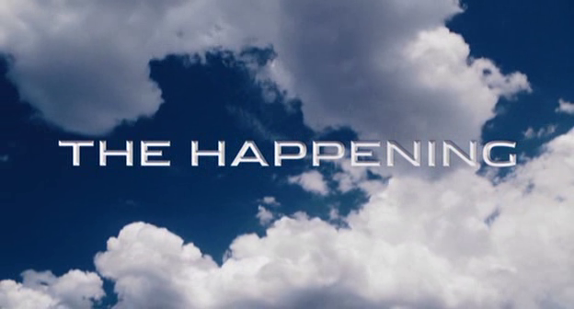
Shyamalan’s last true Shyamalan movie before morphing into an anonymous, studio gun-for-hire with The Last Airbender, The Happening is generally cited as his worst. Tellingly, it’s also his first R-rated work, falling back on the splattery shocks that his previous films merely hinted at. But man do I love The Happening. For sheer entertainment value, it’s my desert island Shyamalan pick. Gone is the portentousness that’s disguised some of the hoary genre cliches he’s trafficked in; what’s left is pure, unaffected B-movie heaven, a modern camp classic of the nature-run-amok genre.
Supported by gloriously terrible performances by Mark Wahlberg and Zooey Deschanel, Shyamalan’s lousy execution abandons all narrative logic and finds him writing tin-eared, unnatural-sounding dialogue that’s consistently quotable – when it’s not bringing you to tears. I don’t think anyone other than Shyamalan could have gotten away with making a movie about a killer wind and play it dead straight.
It also features my favourite Shyamalan cameo – he’s that creepy “Joey” on the cellphone who’s trying to call Deschanel after a tiramisu date! Watching all the extras in the background only adds to the fun. The Happening is another game-changer in its own right.

